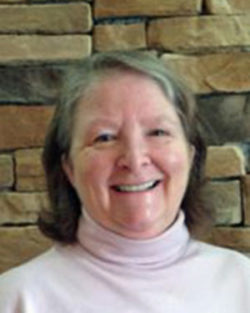The Michigan Community Foundations’ Youth Project was Agard’s initial undertaking with the Council of Michigan Foundations. MCFYP endeavored to strengthen and spread community foundations throughout the state, and to create a youth endowment and Youth Advisory Committee (YAC) for each community foundation. The foundations’ YAC would be comprised of diverse young people under the age of 21 and would empower them to act as grantmakers. This gave them the ability to solve issues within their community while educating them on the process of grantmaking and the capacity of foundations and nonprofits to create change. MCFYP succeeded in reaching its goals; every Michigan community has access to a community foundation, and YACs continue to operate across the state. The project has become a model for youth grantmaking across the nation.
After working on MCFYP for eight years, Agard began work on the K-12 Education in Philanthropy Project, now known as Learning to Give. This initiative provides K-12 teachers with the tools to incorporate themes and topics about philanthropy into their classrooms. The vision behind Learning to Give is that all youth have an understanding of philanthropy, know how it affects their community, and know how they can become actively involved in philanthropic activities. This vision is facilitated through lesson plans that integrate a focus on philanthropy into the topics that teachers are already required to teach, thus delivering the philanthropic lessons to youth without creating new work for already overburdened teachers. These lesson plans were created by teachers, for teachers, and are available online for free download. Agard served as executive director of the Learning to Give initiative for CMF from 1997 to 2006 and guided the focus and development of the program which later spread from Michigan to much of the United States.
One of the things we benefit by, in Michigan, is that people naturally have developed relationships, but I also think that they have an understanding that they need to nurture their relationships. People get in the car and they actually drive to the Upper Peninsula. They drive over to Detroit, or from Detroit they drive over to Muskegon. Michigan is a big state, and still people get together. They take the time to get together. They talk with one another. They josh one another. They go to dinner. I think all of those kinds of things help it when things go wrong. So then when the natural tension happens that will happen as you’re trying to do something new, you have trust in the other people that it just went wrong. It was just a mistake, not that there was any ulterior motive or that there was any other thing other than just life is messy and sometimes things happen, and that everybody is trying to help each other out. Being intentional about developing those relationships might seem a little odd at first, but it’s incredibly important.
In 2006, Agard became the executive director of the Dorothy A. Johnson Center for Philanthropy at Grand Valley State University. Under her leadership, the Johnson Center introduced new functions, increased income each year, launched The Foundation Review, the first peer-reviewed journal of philanthropy, and established the Frey Foundation Chair for Family Philanthropy. Agard retired at the end of 2010, and was succeeded by James Edwards, who said “Dr. Kathy Agard retired, leaving us with a strong local and national reputation. We plan to continue building on her work and our commitment to being a key organization in support of the philanthropic and nonprofit work in Michigan and nationally” (para. 4). During this period, Agard also taught as an associate professor with the School of Public, Nonprofit and Health Administration at GVSU.
Agard volunteered with a number of nonprofit groups, and served on a variety of boards within the sector. She served as vice chair of the board of trustees for Hackley Hospital, chaired its investigational review committee, and served on its personnel committee. Agard is very active within her church, Temple United Methodist Church, and was involved with the both the board of trustees and the board of advisors for the Michigan Nonprofit Association. As a writer in the field, Agard edited the two-volume series, Leadership in Nonprofit Organizations: A Reference Handbook.


























